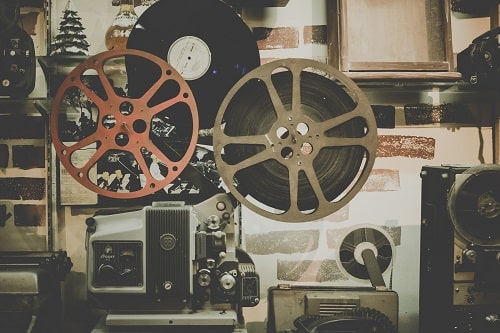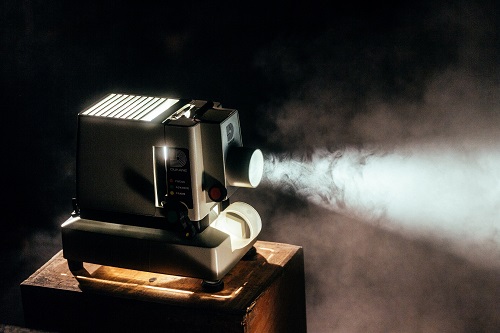Artificial Intelligence (AI) has rapidly taken center stage in the evolution of Hollywood’s film-making process. This cutting-edge technology has influenced various aspects of production, from scriptwriting and editing to visual effects and post-production. One significant leap forward is the use of AI-driven algorithms that can generate detailed computer graphics and even create lifelike digital characters. This has opened new horizons for story-telling, allowing filmmakers to bring to screen what was once considered impossible.
The influence of AI is also seen in predicting audience preferences, which can significantly impact the box office success of new releases. By analyzing viewer data and patterns, AI helps studios make more informed decisions around marketing and distribution strategies. Moreover, as explained by experts, AI’s impact isn’t limited to the screen. Behind the scenes, AI assists in streamlining production workflows, optimizing schedules, and even scouting locations, ensuring that films are produced more efficiently and perhaps more creatively. However, this technological revolution brings with it concerns over originality and the potential reduction of opportunities for creative professionals.
While some fear potential job displacement, others emphasize that AI can be a collaborative tool that enhances the capabilities of human artists rather than replacing them. For instance, AI’s role in editing vast amounts of footage down to the final cut is not a replacement for human decision-making but rather a support that offer filmmakers more creative freedom. The ongoing discussion among industry professionals focuses on finding a balance between leveraging AI’s potential to revolutionize entertainment and preserving the inherently human element that is at the core of the industry.
Evolution of AI in Film Production
AI has propelled film production into a new era, reshaping everything from how scripts are written to the creation of stunning visual spectacles. Here’s how this technology continues to advance the art and science of filmmaking.
AI-Driven Screenwriting
Artificial intelligence is significantly altering the screenwriting landscape. Programs equipped with natural language processing can analyze successful scripts and provide suggestions on pacing, dialogue, and structure. For instance, AI tools now assist in crafting narratives that are more likely to resonate with audiences, as seen with the film industry’s use of AI in script analysis.
Visual Effects and Animation
AI is a game-changer for visual effects (VFX) and animation. It streamlines the creation of realistic and complex scenes that would be costly or impossible to produce physically. Machine learning algorithms can now automate the animation of intricate details like facial expressions and environmental effects, allowing for more lifelike and expressive characters.
Casting and Performance Analysis
In casting and performance analysis, AI provides valuable insights by analyzing an actor’s previous performances, predicting audience reception, and even suggesting actor compatibility based on chemistry. This technology has the potential to support casting decisions, tailoring casting to enhance the storytelling by drawing on a vast array of performance metrics and audience data.
AI in Post-Production
Post-production is witnessing a transformation as artificial intelligence streamlines editing, enhances sound design, and expedites localization. These tools significantly reduce the time and manpower needed for post-production tasks.
Editing
AI technology in film editing is paving the way for more efficient workflows. Advanced software can analyze hours of footage to identify the best takes, which can then be assembled into a rough cut without manual intervention. For instance, AI systems can sort clips based on predefined criteria such as actor expressions or shot composition.
Sound Design
In sound design, AI applications are capable of generating sound effects or a film score by analyzing the tone and pace of a scene. They can also help to reduce background noise and normalize audio levels. Additionally, AI can now recommend soundtracks that would befit the mood of a scene, taking into consideration the genre and narrative tempo.
Localization and Dubbing
The localization process, including dubbing for international audiences, has been notably enhanced by AI. Speech recognition and synthesis technologies allow for rapid translation and voiceover work, which helps films reach a wider audience more quickly. AI also maintains the original actors’ emotional tones, ensuring the performance’s essence is retained across languages.
Distribution and Marketing Strategies
The application of AI has notably revamped the film industry’s approach to distribution and marketing, allowing studios to engage with audiences more effectively.
Predictive Analytics for Audience Reception
Studios now harness predictive analytics to gauge potential audience reception before a movie’s release. By analyzing vast amounts of historical data, AI can identify patterns that predict box office success. For instance, AI-driven analysis of viewer preferences helps in fine-tuning film trailers to target specific demographics, increasing the likelihood of a favorable reception.
Targeted Advertising and Content Recommendation
Targeted advertising has become more sophisticated with AI, as it identifies and segments audiences more efficiently. Films can now benefit from personalized marketing campaigns that are more likely to resonate with viewers. Furthermore, streaming services like Netflix optimize their content recommendation systems with AI algorithms, tailoring suggestions to individuals based on their viewing habits, thus enhancing user experience and potentially boosting viewership.
Ethical Considerations and Creative Control
As artificial intelligence integrates itself into Hollywood filmmaking, it raises ethical questions regarding creative control and influences. These challenges revolve around the balance between AI-driven innovation and the preservation of human creativity, the complexities of intellectual property, and privacy issues within data-driven processes.
Artificial Intelligence vs. Human Creativity
Artificial intelligence has been applied to scriptwriting, and visual effects, sparking debates on its influence on human creativity. While AI can analyze vast datasets to predict what audiences might prefer, creative professionals stress the importance of preserving the human element that captures the nuances of emotion and storytelling.
Intellectual Property Rights
With AI’s capability to generate content autonomously, the lines around intellectual property rights are increasingly blurred. Who owns an AI-generated screenplay or character? Hollywood now grapples with the legal framework that protects both the creators of the AI algorithms and the artists who use them.
Privacy Concerns in Data-Driven Filmmaking
Data-driven filmmaking involves analyzing audience data to tailor marketing strategies and even influence film production. However, such practices raise privacy concerns as viewers’ data could be used without explicit consent, prompting the industry to enforce stringent measures to safeguard personal information.
Case Studies: AI-driven Blockbusters
Artificial Intelligence (AI) has been a game-changer in the evolution of Hollywood blockbusters, guiding everything from pre-production to post-production processes.
Analyzing Success Stories
The entertainment industry has seen its fair share of successes with AI. For instance, with AI, filmmakers are now able to create more realistic visual effects and personalize content for diverse audiences. A significant success story is how AI contributed to the efficiency and creativity in the production of blockbusters, as highlighted by ARQUIMEA’s insights into AI’s transformational impact on the sector. These technological advancements are not just about savings in cost but also in the time taken to bring a story from script to screen.
Challenges and Setbacks
However, along with successes come challenges and setbacks. An important consideration is the industry’s apprehension about generative AI’s potential impact on content originality in Hollywood and entertainment, as debated by experts. Concerns include a possible increase in predictability and a reduction in unique narrative creation, which are the soul of entertainment. Furthermore, while AI promises to enhance efficiency, there is ongoing debate regarding its effect on the number of performers who can sustain a living within the evolving industry landscape.



 RELATED POSTS
RELATED POSTS





0 Comments